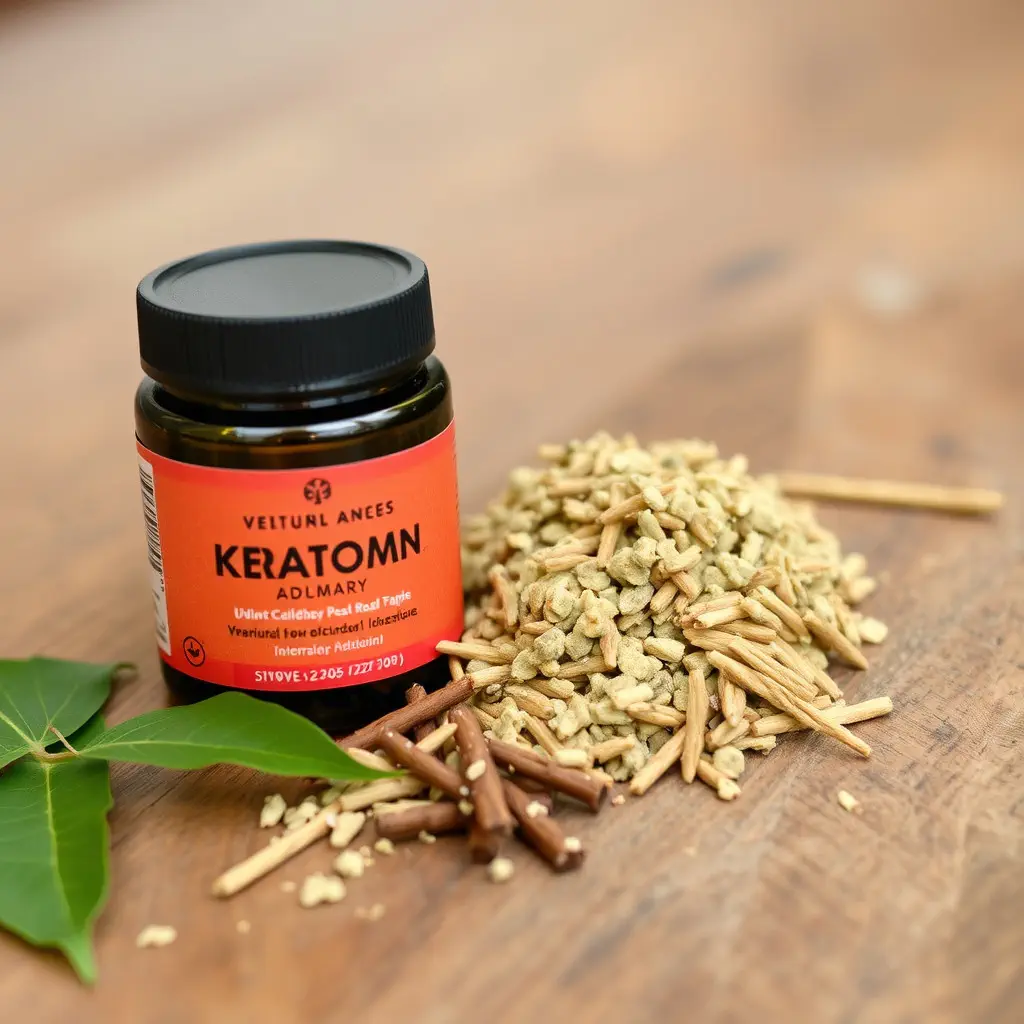Kratom's legal status in Michigan presents a complex situation with state law classifying it as a Schedule 1 substance, aligning with illegal drugs like heroin, despite the DEA not placing it under this category at the federal level. This discrepancy creates confusion and highlights the need for legislative clarity regarding kratom's legal standing nationwide. In Michigan specifically, the issue is particularly significant due to its proximity to Vietnam, a major producer of high-quality kratom leaves, which could impact international trade and supply chains if there are changes in legislation. Users and stakeholders must closely monitor these developments to ensure compliance with local regulations. As of now, kratom is legal in Michigan, but its availability and use may be subject to state oversight, emphasizing the importance for consumers to stay informed about the evolving legal landscape of this botanical product, which is also known for its distinct alkaloid composition from Vietnamese cultivation, influencing its effects and qualities. Users should source kratom responsibly and be aware of the health implications, adhering to state regulations for safe and informed consumption.
Kratom, a plant native to Southeast Asia, has garnered global attention for its diverse effects and potential benefits. Within the United States, particularly in Michigan, the legal status of this botanical has sparked discussion and scrutiny. This article delves into the nuanced legality of kratom in Michigan and traces its connection to the Vietnamese kratom leaves that are increasingly in demand. We explore the origins and cultivation practices that contribute to the unique properties of Vietnamese kratom, offering insights into how it differs from other strains. Additionally, we examine the effects and uses of Vietnamese kratom leaves, providing context for users in Michigan where its legal access is a pressing issue. Understanding these aspects is crucial for those navigating the complexities surrounding kratom’s legality and its impact on health and well-being.
- Exploring the Legal Status of Kratom in Michigan and Its Connection to Vietnamese Kratom Leaves
- The Origins and Cultivation of Vietnamese Kratom Leaves: A Deep Dive into Their Unique Properties
- Understanding the Effects and Uses of Vietnamese Kratom Leaves in the Context of Legal Access in Michigan
Exploring the Legal Status of Kratom in Michigan and Its Connection to Vietnamese Kratom Leaves

In recent years, the discussion surrounding the legality of kratom in the United States has been a topic of considerable debate. As of the knowledge cutoff date, kratom’s legal status varies across different states, with Michigan being one of the many to consider its position on this mitragynine-containing plant. In Michigan, the legal landscape for kratom is subject to change, as it has been classified as a Schedule 1 substance under state law, which places restrictions similar to those of illegal drugs like heroin. This classification effectively makes it illegal to manufacture, distribute, or possess kratom within the state’s borders. However, at the federal level, the DEA has not placed kratom in the same category as Schedule 1 substances, leaving a gap where state and federal laws intersect. This discrepancy can lead to confusion for consumers and vendors alike. The legality of kratom in Michigan directly impacts the trade and consumption of Vietnamese kratom leaves, which are a significant portion of the kratom market in the United States. Vietnam’s climate and soil conditions are conducive to cultivating high-quality kratom leaves, and many vendors source their products from Vietnamese farms. As such, any changes in Michigan’s legislation concerning kratom can have direct implications for these international trade relationships and the availability of Vietnamese kratom leaves within the state. It is imperative for consumers and businesses to stay informed about the evolving legal status of kratom in Michigan to navigate this complex issue responsibly.
The Origins and Cultivation of Vietnamese Kratom Leaves: A Deep Dive into Their Unique Properties

In the rich, diverse landscapes of Vietnam, Kratom (Mitragyna speciosa) leaves have garnered attention for their distinct properties and potential benefits. The origins of Vietnamese Kratom date back to its natural habitat within the lush forests and fertile soil that characterize parts of this Southeast Asian country. The climate, with its particular humidity levels and temperature variations, contributes to the unique alkaloid profile found in these leaves. Unlike other regions where Kratom is cultivated, Vietnamese farmers employ traditional and sustainable agricultural practices that preserve the purity and potency of the plant. These methods, combined with the native soil composition and specific environmental conditions, result in Kratom strains that exhibit a range of effects from the plant’s two primary alkaloids, mitragynine and 7-hydroxymitragynine.
The cultivation process in Vietnam is meticulously managed to ensure the highest quality of the leaves. The plants are often grown under the dappled sunlight that filters through the canopy, which some believe enhances the alkaloid content. After maturation, the leaves are handpicked and dried with care to preserve their active compounds. This dedication to maintaining the integrity of Kratom has led to its increasing popularity globally. In regions like Michigan in the United States, individuals are exploring the potential benefits of Kratom, prompting questions about its legal status. As of the knowledge cutoff date in 2023, the legalities of Kratom use and possession vary across states; while it is federally legal, individual state laws differ. In Michigan, for instance, Kratom is currently legal but subject to regulatory oversight. This dynamic legal landscape underscores the importance of understanding local regulations before engaging with products containing Kratom, as its status may change with new legislation.
Understanding the Effects and Uses of Vietnamese Kratom Leaves in the Context of Legal Access in Michigan

Vietnamese Kratom leaves, derived from the Mitragyna speciosa tree, have been the subject of increasing interest due to their unique alkaloid profile and potential effects. The Kratom plant’s leaves are traditionally chewed by people in its native regions of Southeast Asia for energy and to relieve pain. In Michigan, where the legal status of Kratom has been a point of contention, understanding the effects and uses of Vietnamese Kratom is crucial for consumers and policymakers alike. Is Kratom legal in Michigan? As of the knowledge cutoff date, Kratom is legal at the federal level but its legality varies across states and localities within the United States. In Michigan, Kratom is currently unregulated, meaning it can be bought and sold without restrictions specific to Kratom alone. This situation presents an opportunity for consumers to explore the myriad benefits that Vietnamese Kratom leaves may offer, including pain relief, mood enhancement, and as a substitute for opioids in certain contexts. However, due to the lack of regulation, it is imperative for users to exercise caution, ensuring they source high-quality products from reputable vendors. The effects of Kratom can be highly individual, with factors such as dosage, strain, and personal biochemistry all playing significant roles in determining one’s experience. As such, users should approach the use of Vietnamese Kratom leaves with a clear understanding of their own needs and potential sensitivities, and always prioritize safety and informed decision-making within the legal access framework provided by Michigan state laws.
In conclusion, the discussion surrounding the legality and cultivation of Vietnamese Kratom leaves in Michigan has shed light on a niche yet significant aspect of herbal supplements. As established, the status of kratom, including Vietnamese varieties, within Michigan’s legal framework continues to be a topic of interest for policymakers and consumers alike. The unique properties of these leaves, which have roots in their Southeast Asian origins, offer insights into their potential effects and uses, particularly as they relate to the broader context of accessible, regulated substances in the state. For those seeking natural alternatives or additional research on kratom’s legal standing and benefits in Michigan, this article provides a comprehensive overview, underscoring the importance of understanding both the regulatory environment and the inherent characteristics of Vietnamese Kratom leaves.






